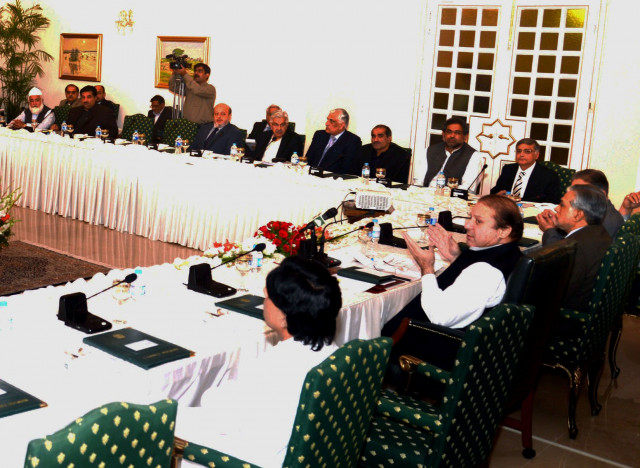Striving for peace
The cabinet’s decision to steer clear of any “emotional” decisions makes sense.

It is, of course, the prerogative of the government we have elected to make decisions. But while doing so, it would do well to also look at the past and the outcome of decisions taken then. PHOTO: PID

Overall, the cabinet has decided to continue to pursue the peace process with the Taliban, as per the decision made in September at an All Parties Conference. It is, of course, the prerogative of the government we have elected to make decisions. But while doing so, it would do well to also look at the past and the outcome of decisions taken then. We have seen one peace accord after the other reached with the militants break down. This holds true for both agreements made with the military and civilian set-ups. One of the latest examples comes from North Waziristan, where a peace accord between security forces and militant groups reached in 2006 seems to be in danger of collapse as reports come in of cross-firing, casualties and a warning by militants to local people of a possible increase in hostilities.
This record should make us think. The argument goes that peace deals have in the past provided the militants time and space to regroup, reorganise and strike back with still greater force. It is always wise to avoid repeating the same mistakes over and over again. The PM and the cabinet would do well to take heed of this, as they consider what is the most realistic way to eradicate militancy and restore the peace our nation so badly needs if it is to escape its current state of crisis. The cycle of violence needs to come to an end for us to move forward in any manner. We cannot afford a repeat of past events yet again.
Published in The Express Tribune, November 6th, 2013.
Like Opinion & Editorial on Facebook, follow @ETOpEd on Twitter to receive all updates on all our daily pieces.














COMMENTS
Comments are moderated and generally will be posted if they are on-topic and not abusive.
For more information, please see our Comments FAQ